Worker unions can be a great way for employees to protect their rights. However, unionizing is not as common as it was back in the ’80s or ’90s. In Canada, 38% of workers were members of a union in 1988, and only 29% are in unions as of 2022.
A story by a Canadian telecom company worker recently gained a lot of traction online. In it, the guy recounted how, back in the early 2000s, he and his colleagues were promised raises so they wouldn’t unionize. But their manager kept delaying administering them. That is, until one employee went over the boss’s head and complained straight to the CEO.
A company promised its workers raises, but one manager would delay them again and again

Image credits: LinkedIn Sales Solutions (not the actual photo)
One employee had enough and decided to go straight to the CEO to complain
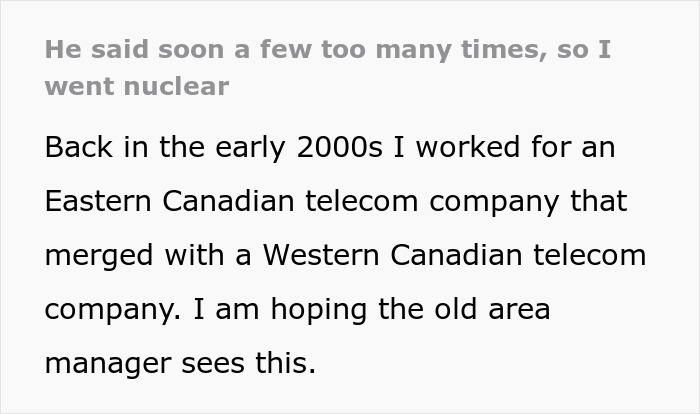
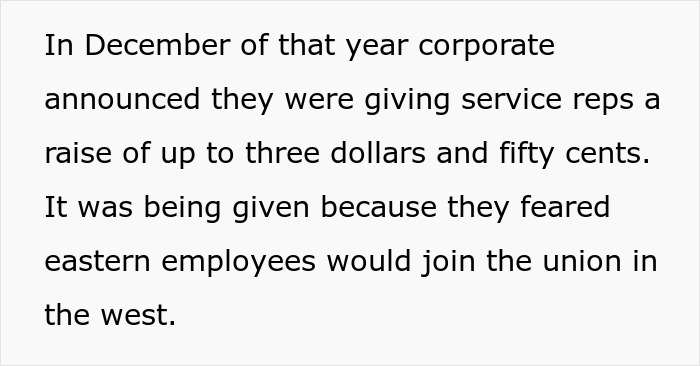
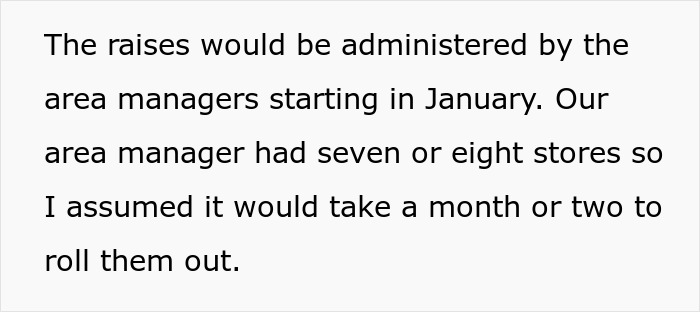





Image credits: Getty Images (not the actual photo)
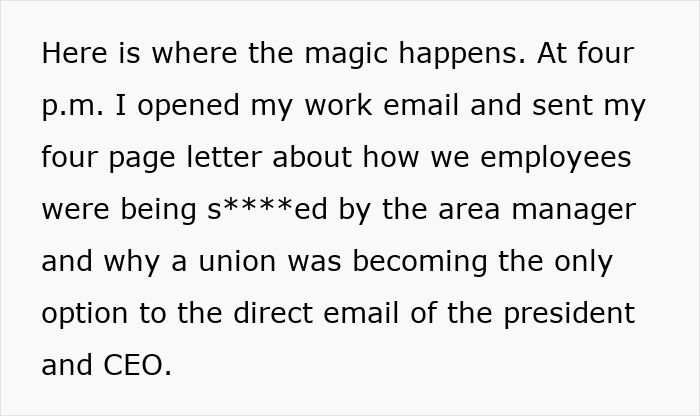
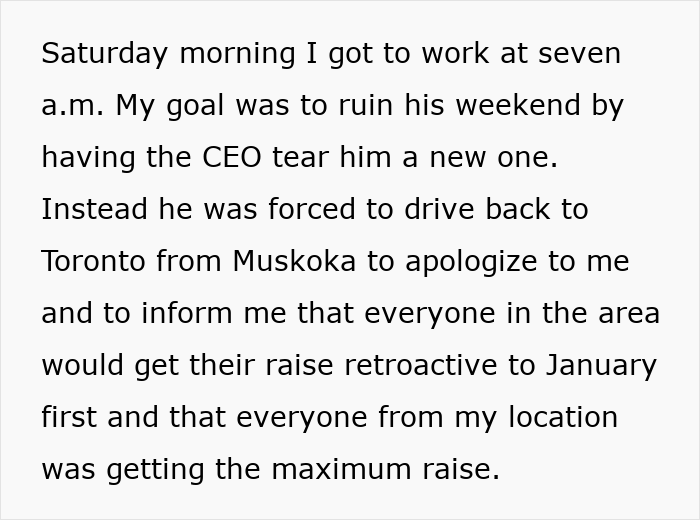







Image credits: René Ranisc (not the actual photo)


Image source: Cicche
Confidence and being direct can help get that pay raise you were promised

Image credits: Getty Images (not the actual photo)
It’s natural for an employee to expect a raise as they continue working at the same company. As Statistics Canada reports, the average Canadian receives a 3.8%–4.2% salary increase annually. Of course, that depends on whether you work in the private or public sector, your position, experience, and so on.
But what do you do when your boss is refusing or, as in this case, delaying the raise they have promised you? According to Indeed, there might be three reasons why you’re not getting your promised raise:
We know that none of the reasons technically apply to this story, but was there any other option the employees could have taken? One that wasn’t, perhaps, as one commenter put it, “too petty”? This is what the experts at Indeed recommend:
Fewer workers are joining unions, but the attitude toward them remains positive

Image credits: Getty Images (not the actual photo)
Although fewer workers seem to be unionizing throughout the years across many different sectors, it would be wrong to assume that unions are no longer worth it. We only need to take a look at Hollywood: the 2023 SAG-AFTRA strike proved that even famous people want better pay and working conditions.
Unionized workers in Canada can boast more job benefits than those who aren’t. According to the Canadian Centre for Policy Alternatives, 80% of union workers have at least some kind of sick leave policy, while only 55% of non-unionized workers have it. Unionized workers also earn more, even if it’s just 11 cents more per hour than non-unionized workers.
In the U.S., autoworkers organized a strike in 2023 against the three biggest auto manufacturers: Ford, GM (General Motors), and Stellantis (Chrysler). The UAW (United Auto Workers) was able to negotiate raises, faster pay progression, retirement security improvements, and other benefits.
Experts called the strike and its outcome unprecedented, since the percentage of American workers in unions is currently the lowest it has ever been: only 10.1% of workers belong to unions in 2022.
Given that, the majority of workers believe in unions and their benefits to workers. A recent poll commissioned by the Canadian Labour Congress shows that 62% of Canadians believe that unions are a good thing. A whopping 70% also wish that the government would help remove the obstacles to joining or forming unions, such as intimidation from the employer, misinformation in the workplace, and would simplify the bureaucratic process.
Although he clarified that apart from the raises, the company was treating its workers well
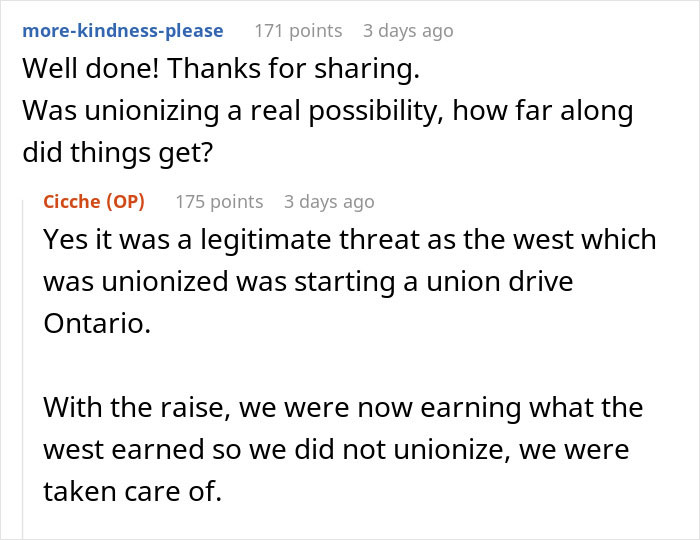
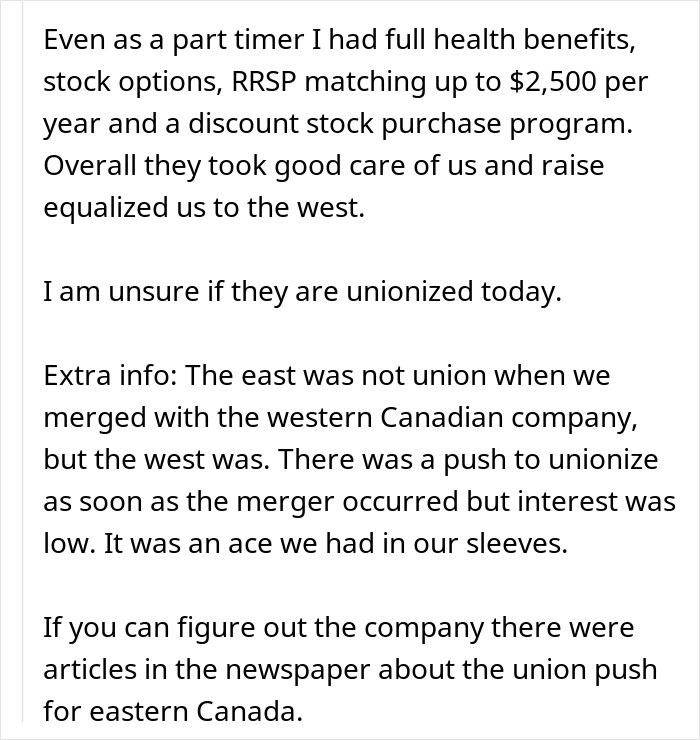





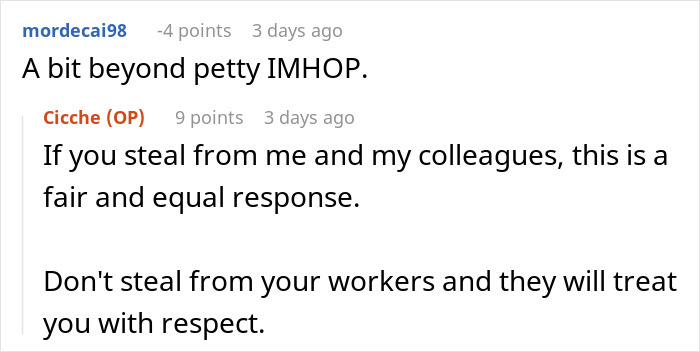
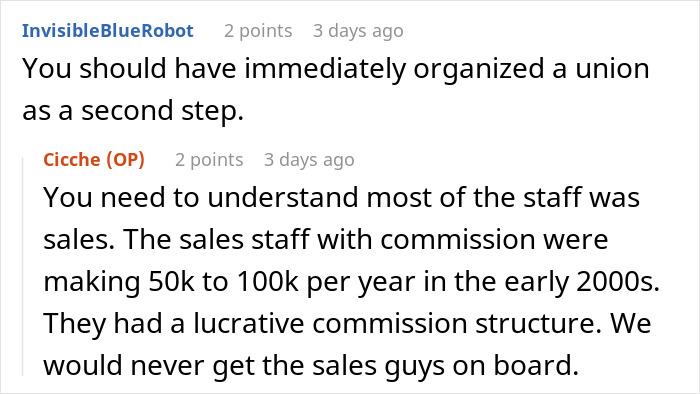


“Chef’s kiss,” the commenters applauded the employee for his brilliant plan




















One netizen also shared a similar story
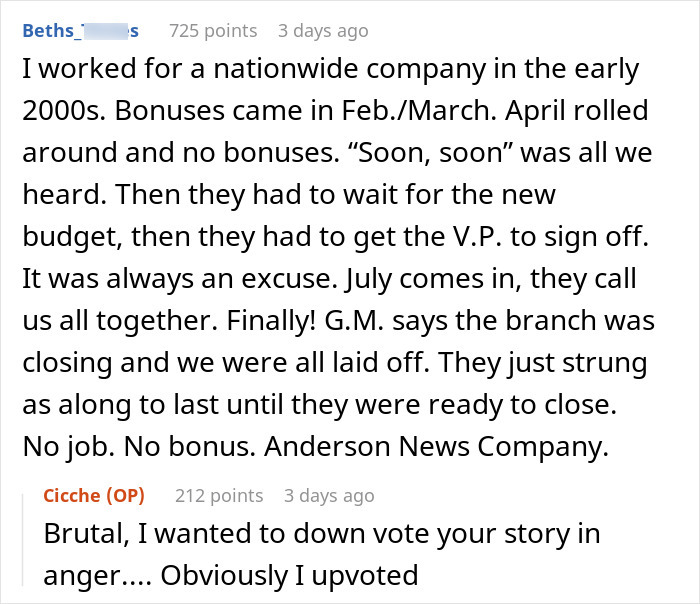
 Follow Us
Follow Us





